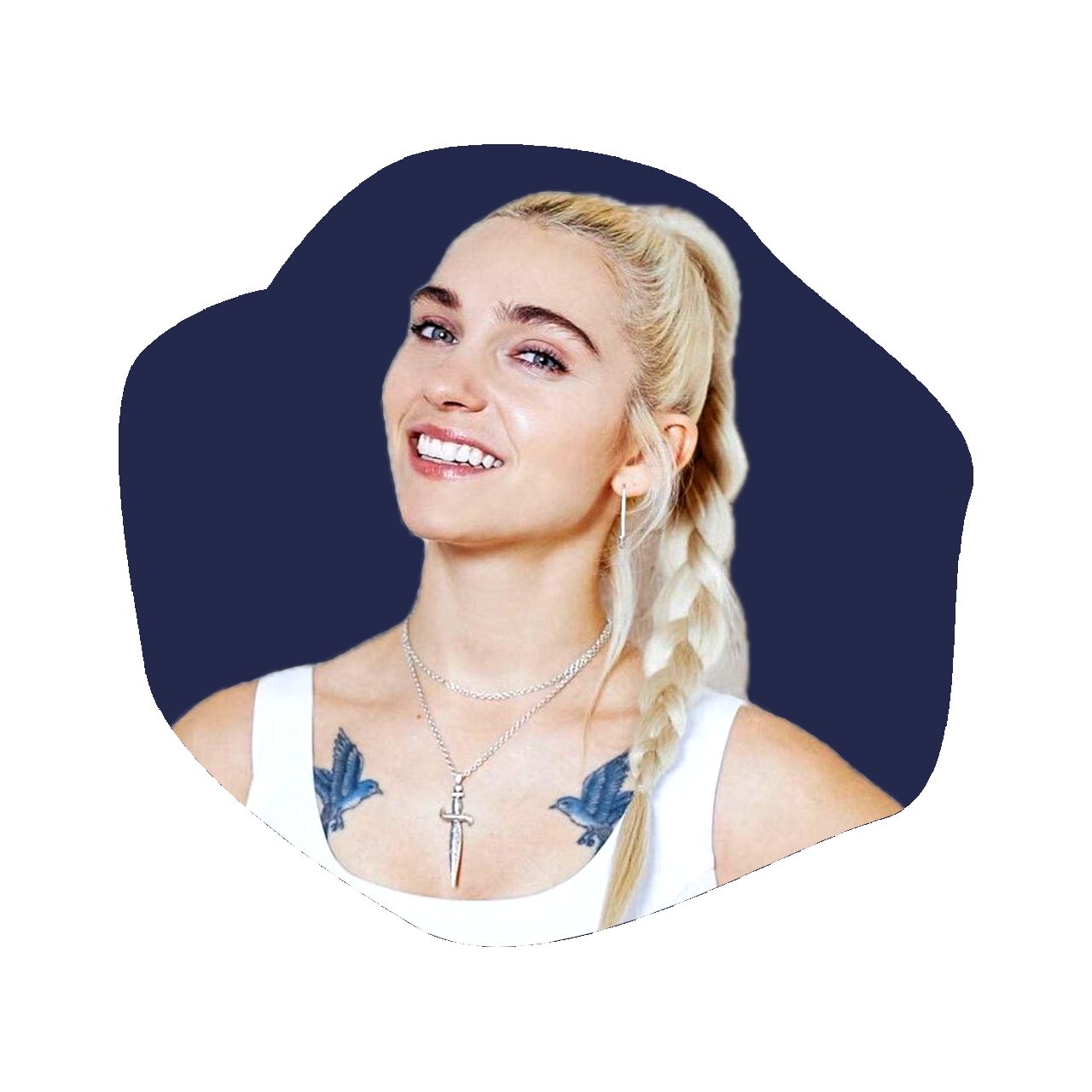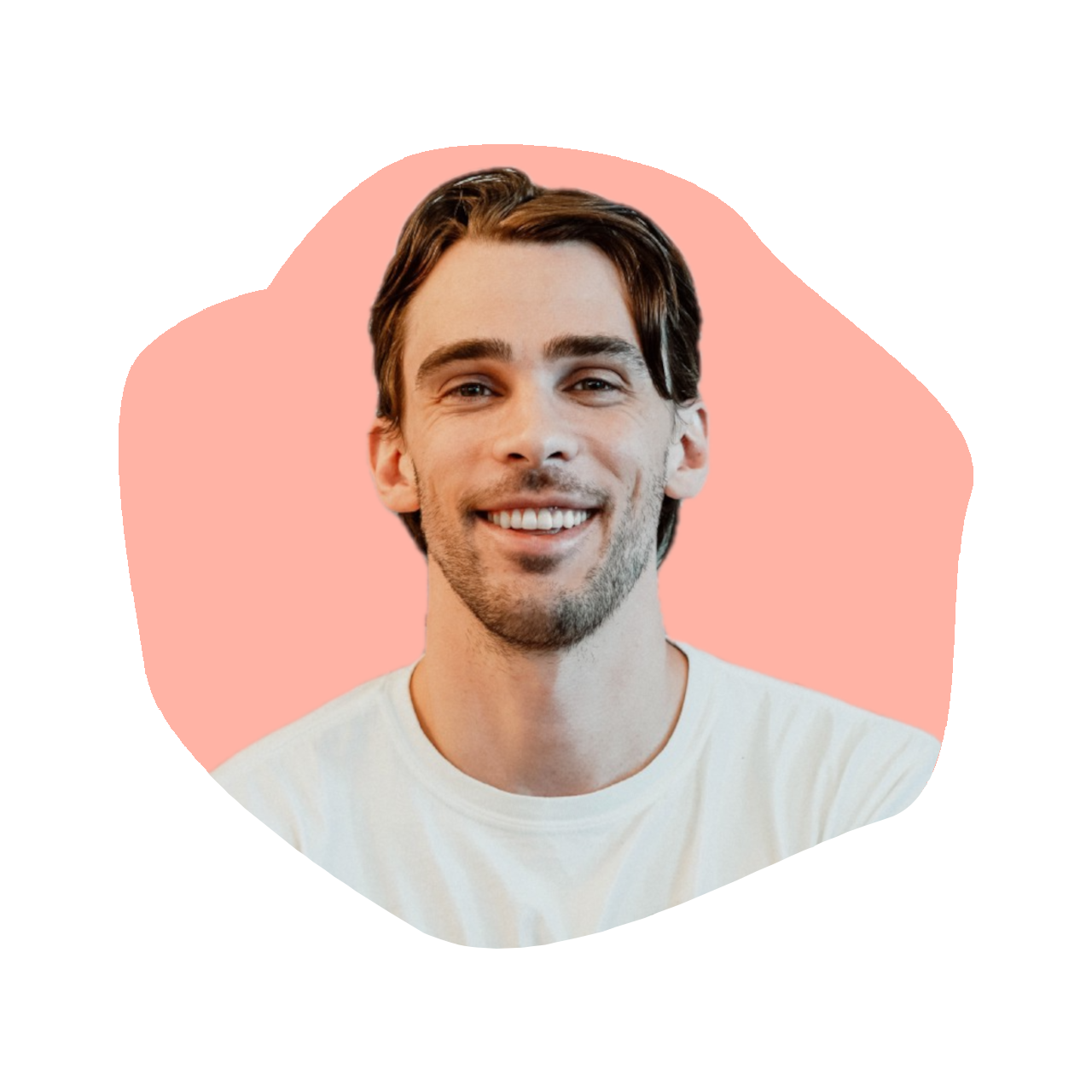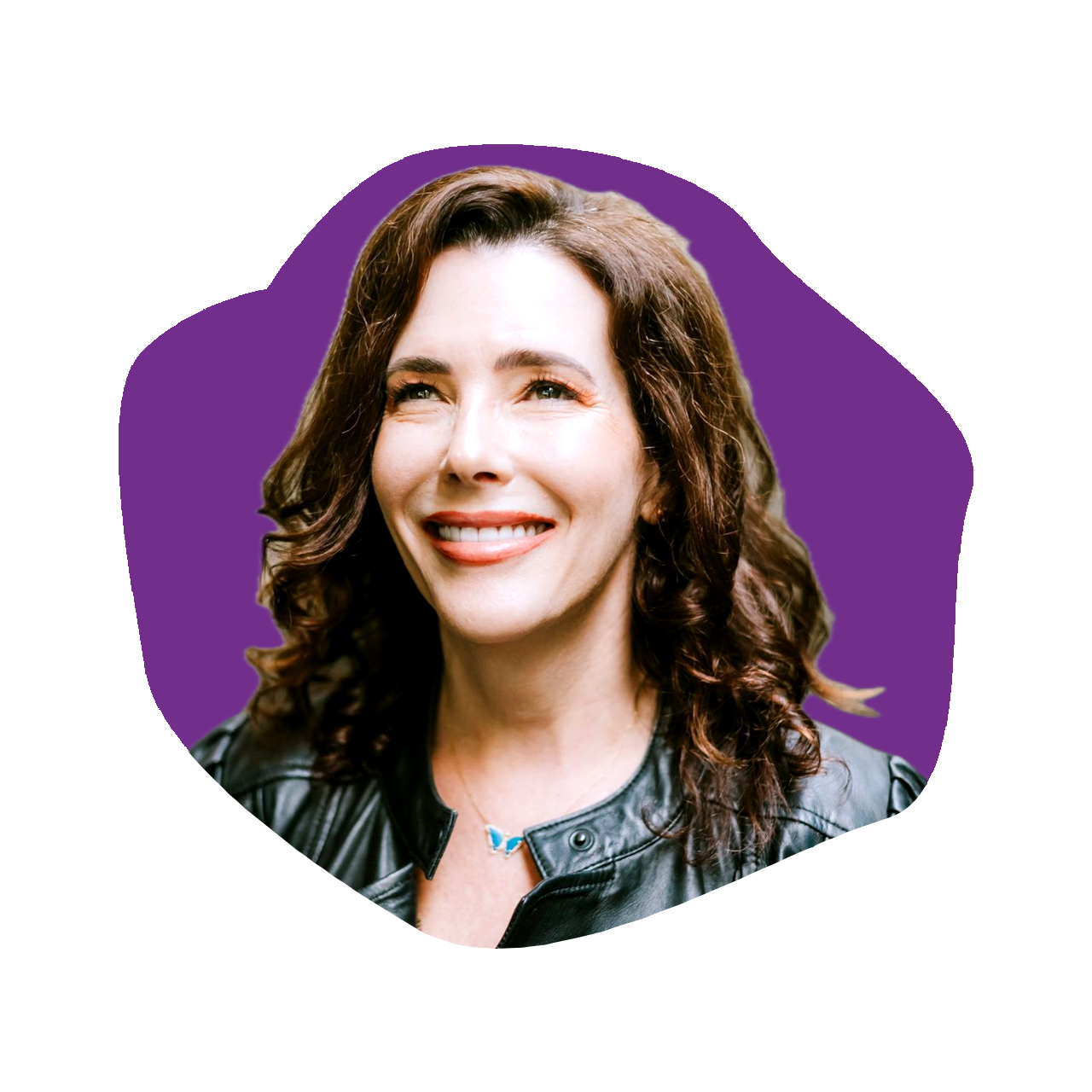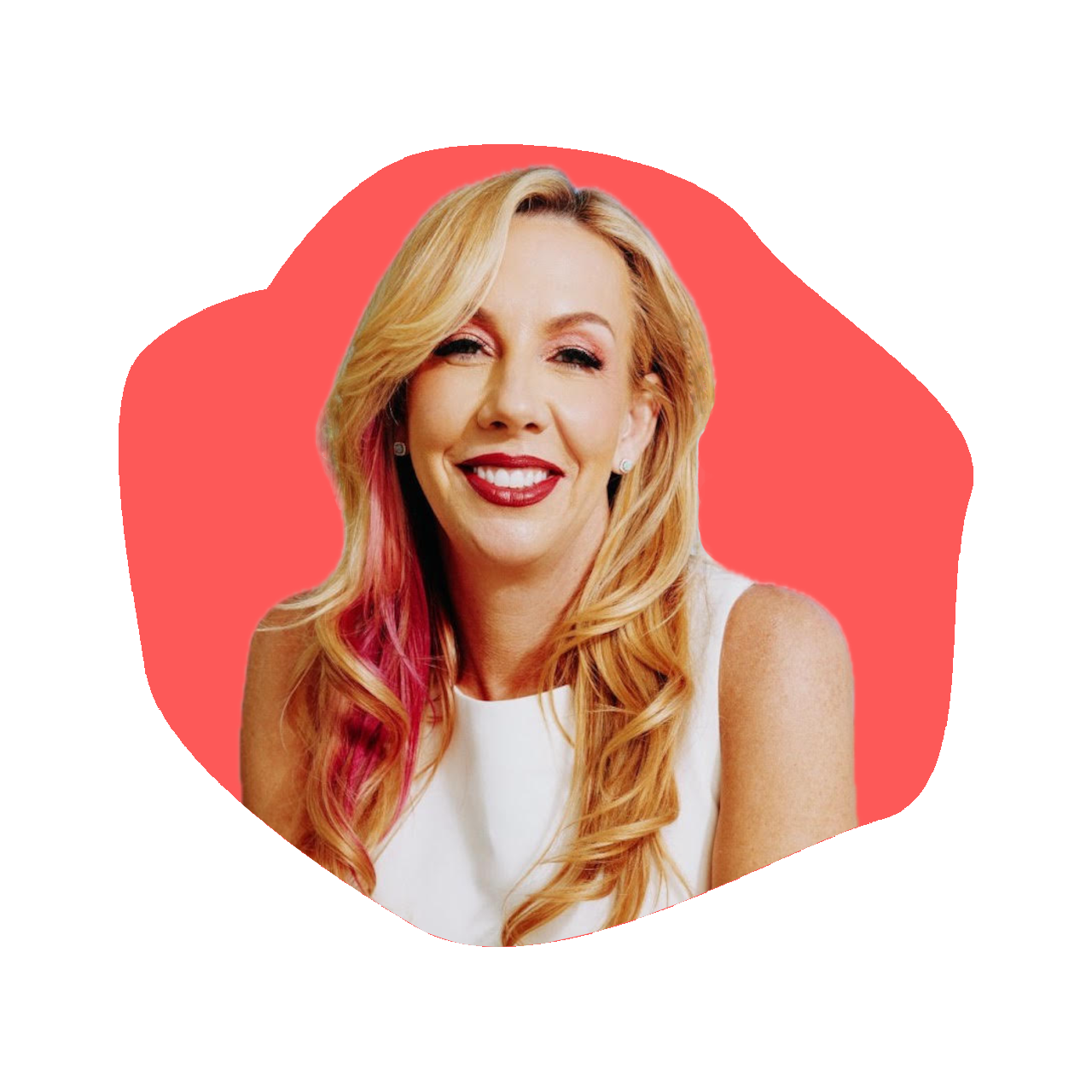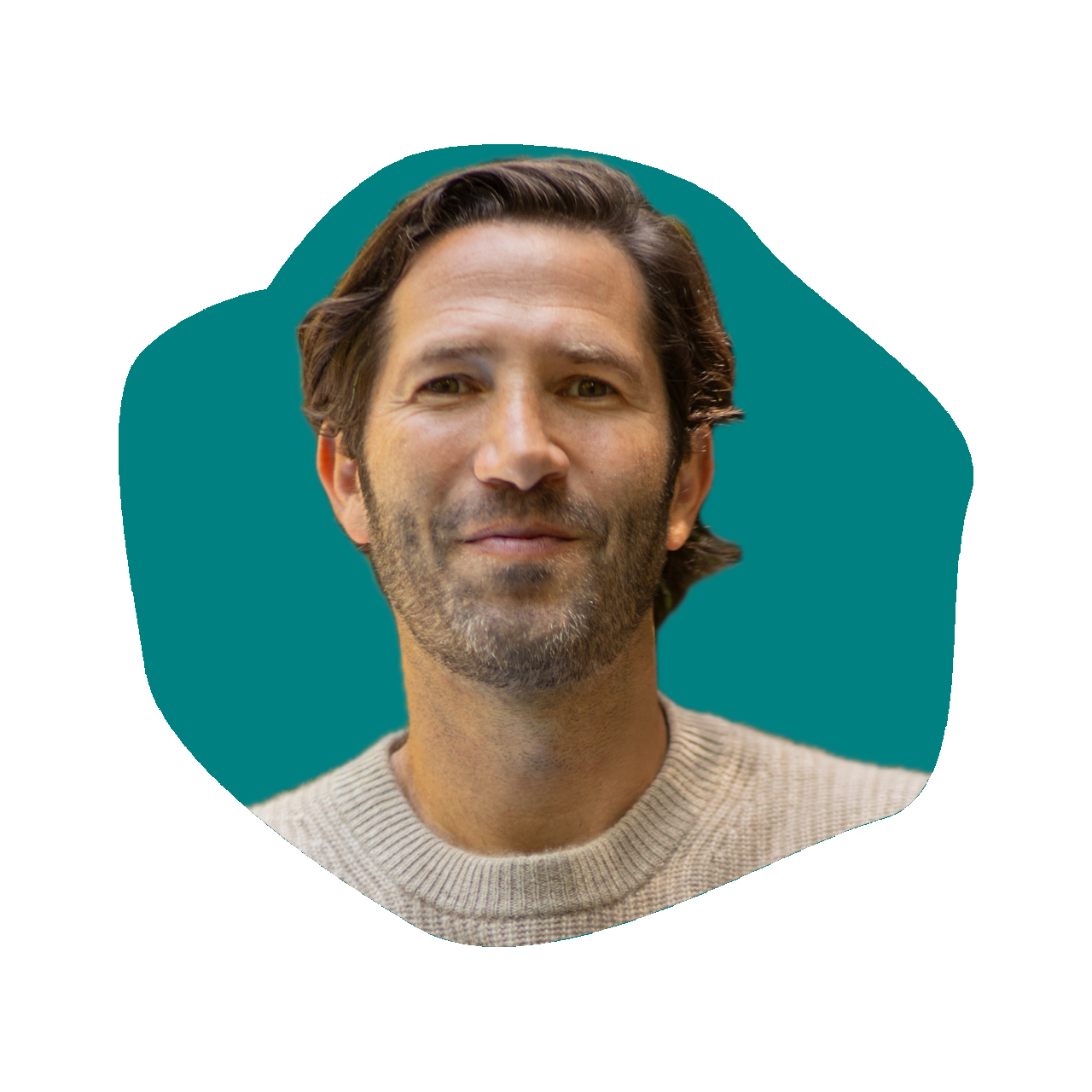Maryellis Bunn: Co-Founder & CEO of Figure8 (Museum of Ice Cream)
Episode 556
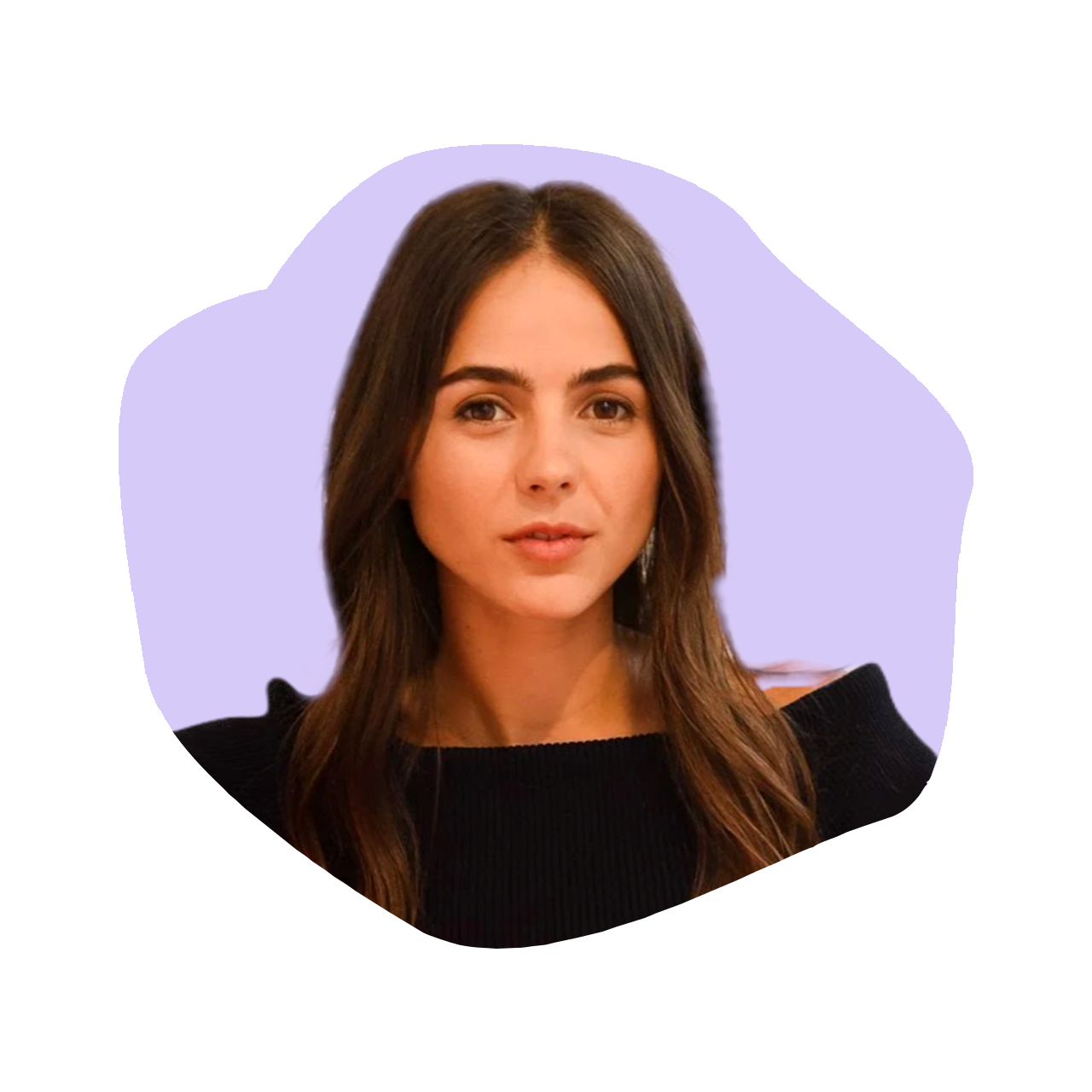
On this episode of The Kara Goldin Show, we are joined by Maryellis Schiller who is the Co-Founder and Co-CEO of Figure8 (Museum of Ice Cream), a creative and immersive brand known for its innovative and delightful experiential experiences. Maryellis co-founded the Figure8 and Museum of Ice Cream to redefine what it means to connect through experience. Recognized globally for creating multi-sensory experiences that have captured the imaginations of millions, Maryellis continues to innovate from her current base in Mexico City. She shares the story behind the Museum of Ice Cream, the power of immersive experiences, and we get the scoop on what’s next for this incredible brand. Have pen and paper ready! You don’t want to miss a minute of this motivational episode with so much to learn and be inspired by. Now on this episode of The Kara Goldin Show.
Resources from
this episode:
Enjoying this episode of #TheKaraGoldinShow? Let Kara know by clicking on the links below and sending her a quick shout-out on social!
Follow Kara on LinkedIn – Instagram – X – Facebook – TikTok – YouTube – Threads
Have a question for Kara about one of our episodes? Reach out to Kara directly at [email protected]
To learn more about Maryellis Bunn and Museum of Ice Cream:
https://www.instagram.com/maryellis.bunn/
https://www.linkedin.com/in/maryellisbunn/
https://twitter.com/MaryellisBunn
https://www.instagram.com/museumoficecream/
https://www.museumoficecream.com/
Transcript
Kara Goldin 0:00
I am unwilling to give up that I will start over from scratch as many times as it takes to get where I want to be I want to be, you just want to make sure you will get knocked down. But just make sure you don’t get knocked down knocked out. So your only choice should be go focus on what you can control control control. Hi, everyone and welcome to the Kara Goldin show. Join me each week for inspiring conversations with some of the world’s greatest leaders. We’ll talk with founders, entrepreneurs, CEOs, and really some of the most interesting people of our time. Can’t wait to get started. Let’s go. Let’s go. Hi, everyone. And welcome back to the Kara Goldin show super excited to have my next guest with us we have Maryellis Bunn, who is the co founder and CEO of a company called Figure8. If you are not familiar with Figure8, you may recognize one of their companies underneath it Museum of Ice Cream that is really such an incredible creative, immersive brand that if you have not heard of Museum of Ice Cream, for sure, you have been hiding under a rock because they have really done such a fabulous job of really making their way into many, many cities across the US and really creating such an amazing experience, but recognized globally for creating multi sensory experiences. Figure8 has really captured the imagination of millions. And I’m so excited for Maryellis to share a little bit more about her journey and about how she decided to develop this brand and really talk about what’s next overall for the company. So Maryellis, nice to finally meet you face to face and really excited that you’re here. Likewise, such a pleasure. So could you share the inspiration behind starting Figure8? And like, which came first? Was it Figure8 or Museum of Ice Cream? Or I know that that was the first part that I really recognized? And it sort of kind of put you on the map? For sure. But can you talk a little bit more about how did this all come to be? Museum
Maryellis Bunn 2:25
of ice cream came first, it was never intended to be a business, let alone, you know, be a product and a place that we’ve built and grown all over the world and seen millions and millions of visitors. It was really a passion project that my co founder and I wanted to build in response to a need that we saw on the market, which was how do we bring people together under something or under a subject matter? Rather, it’s completely universal, and really drives home our mission, which at the time, and which still remains today is how do we ignite imagination and the imagination, really, of a child into adults? And how do we use something as simple as ice cream, to bring people together to have a shared collective experience. So Museum of Ice Cream came first we built it as a passion project, built several pop up museums and then moved on after we kind of figured out the gist of what we were doing and to building permanent spaces. And then from there, we realized how there’s such an incredible need in the market to really transform physically built spaces into permanent experiences, which was then what led us to building Figure8, which is our parent company that designs and produces under that same ethos, new experiences as well.
Kara Goldin 3:56
That’s absolutely incredible. What were you doing before this Maryellis,
Maryellis Bunn 4:00
I moved to New York City when I was 16 years old, went to school. And then after I graduated, I had one desk job and it was working for timing. And it was in that experience that I realized through understanding the ways in which advertisers at the time were thinking about engaging with the consumer, I saw this opportunity I said people are spending so much money at the time in both print and digital advertisement, what it means for us some of these dollars to create physical experiences and what it produce the same and or a higher row class and what we found was so phenomenal. And it did and that was kind of this one of the seeds that we use to plant some of the ideas that Building Museum of Ice Cream which was engaging your brand and then consumer world and something that’s quite tactical has such a higher return or has a higher return rather than And something that’s just digital, digitally present.
Kara Goldin 5:03
So your first museum was were in New
Maryellis Bunn 5:07
York City across the street from the new Whitney on Gansevoort Street. It’s
Kara Goldin 5:11
such a terrific location. So it’s, if anybody has not been to that location, it’s really terrific. What’s been the most surprising thing about the museum since you opened? That, I guess, something that’s really shocked you I mean, when I think about ice cream, maybe obviously, it’s not just about kids, but I feel like there are plenty of adults in there, adults that are not necessarily there with kids, as well, what you’ve done to actually promote play and, and having fun and team meetings and things like that, like I think are, are definitely evident. But I I’d be so curious, like what surprised you the most,
Maryellis Bunn 6:00
the hypothesis that adults need to be able to play? When we first started, this was an applied experience that my co founder, my friends that I was just like, seeing didn’t realize how gigantic of a needed is to be able to allow people to remove themselves from their day to day world, and use a combination of escapism, and then really a promotion of it’s okay, not only is it okay, but is encouraged for us as adults, to learn from the kids and how we can express ourselves and just get a little bit loose. And I think the thing that surprised me most about that is how much of a rarity, that type of experiences for most humans.
Kara Goldin 6:53
Yeah, no, definitely. So museum that word. I think so often people think that there’s change, right, that goes on within, with within what they’re going to see how much has your has Museum of Ice Cream changed from the concept from when you first launched versus what it is today.
Maryellis Bunn 7:16
It’s funny, the word Museum is something that we go back and forth on quite often. And eight years ago, when we founded this business, there wasn’t anything like it in the category. There wasn’t this space of experiential, we call them location based entertainment, we coined the phrase experience, which is a place in which people have experiences, it didn’t exist. And so we decided on a descriptor for our name, and go back and forth if it’s a regret, or was a good decision. And I think one of the things that has changed, and then one thing, one thing that’s changed is people like Well, you’re a museum, we want to learn something. And that never really was our intention of learning something. In a more traditional sense of history of ice cream, we’ve incorporated that in small amounts. I think probably perhaps more fascinating is as most of the experiential space has gone and leaned in tech technology in terms of their forward facing experiences. Over time, we’ve actually regressed away from them. We really believe that getting people into tactile and nostalgic experiences is best done without the use of technology. And that’s been something that shifted over the years.
Kara Goldin 8:35
So you co founded the company, Figure8, back in 2016. So how did you think about finding a co founder? And how did you actually go about doing that? Finding
Maryellis Bunn 8:48
a co founder, you know, my business partner, Manisha and I both had such a shared desire and love to facilitate community. And we balance each other in the sector. And I think that to answer your question is like, what are the important factors? I think it’s first identifying where your weaknesses, and where do you need to compensate your own weaknesses with your co founder strengths. And our process has been since the start. I work on high level concepts, what’s the most fantastical world that we can create? And he works in the middle piece of figuring out how that operationally becomes a reality. And then I come again, at the end to make sure all those finishing touches have a narrative that can really apply and a feeling or the feeling that we wanted to create you have people experience is delivered. I
Kara Goldin 9:44
think it’s so critical when you’re launching a brand and I think people talk about this now I think more than ever, it’s should be able to have somebody that really is kind of balancing you and being able to partner with because I think being a founder too. A is it’s never been easy. But I think the awareness around being a founder is becoming more front and center. And I think that the companies that seem to last really are the ones that have the co founders and the people that are dividing up responsibilities as you’re talking about. So that’s super great to hear. So when you think about building audience beyond the initial start back in 2016, when the how do you find those strong and loyal community that’s going to keep coming back again, and again? And again? How do you think about some of the strategies maybe that you’ve implemented and sort of how important is that, and in being able to have a brand that’s, that’s really there to last? Since
Maryellis Bunn 10:49
the beginning, we’ve had super fans, we open up a new location, we activate outside of our four walls, and they show up and they fly. And I think the piece of the puzzle that is both a part of luck, which we have in our business, and also is really strategic was we hit upon something that already is so tied to someone’s own experience ice cream, right ice cream is one of the earliest memories that I had as a child, and we talk to and we survey so many 1000s, hundreds of 1000s of people, ice cream has become this milestone within individuals lives, whether it’s your first birthday party, or your first major breakup, and you’re on the couch with you know, a pint and you’re, you know, kind of eating away your feelings. And so we use that to our advantage to use ice cream as a center point to bring people back to those memories and then to create new memories moving forward. And in terms of driving repeat guest there’s nothing better than going having an experience that you love, and then going back a second time as more of a host. And the way we think about radical hospitality is our repeat visitors are bringing someone new that they didn’t go with on their previous trip, whether you know it’s on a new date, or a family member is because a family member is visiting. And it’s so important to allow them to give them the agency to kind of host the experience. And that’s something that we think a lot about within our customer or visitor as we call them loyalty initiatives. And then also to at the end of the day, it is it’s the hospitality, if you have an experience that makes you feel something you’re destined to honor return, just return on your on will return and be able to share it.
Kara Goldin 12:42
Yeah, definitely. So customer stories are always the best. I always say that those stories are the things that really help the founders, the CEOs, the leadership team kind of know that they’re doing the right thing. Do you remember any stories along the way that have really stuck with you that have helped you to think about not only that you’re doing something right, but also where you guys are going in the future?
Maryellis Bunn 13:09
Anecdotally, the stories today are still what keeps us going, right? There’s 1000s of visitors, we listen to them. And for me, like it’s the DMS in the inbox or, you know, the visitor that somehow figured out my email or sent me a DM on Instagram. That, yeah, it’s the feeling right, the feeling that we created that they want to share with us. Many years ago, perhaps one of the most touching ones is we had just built a pop up in Los Angeles, and I was sitting outside at a neighboring pizza restaurant. And mother was a little bit frantic. And she was seemed quite emotional. I just was checking in on her. I was like, are you okay? And she started to tear up and she was crying. And she said, you know, not really, I’m really sick. And I just had this experience with my kids. And it was the first time in a really long time that I hadn’t thought about my illness. And I was like, Well, where did you go and she’s like, Oh, it’s just across the street at Museum of Ice Cream. And it was in that moment that I realized that it’s not for every visitor that I’m going to be create that experience. But if I can do that just once in a day or once in a week, and allow people to remove themselves from whatever is showering them, you know, today and you know, days today are quite difficult and allow them to get outside of that experience for a moment. And to really, you know, just enjoy their time. And this this mom’s case with her kids. I was like, wow, I got to keep building these things. It’s really something special.
Kara Goldin 14:46
How many are you up to now in terms of centers across the world?
Maryellis Bunn 14:52
Yeah, so we two main hubs, the United States and Asia and our team right now is focusing on you know, We’re building tons of new experiences both Museum of Ice Cream, and new experiences. I’ve I can’t tell you how many new ones are coming online. It’s, it’s quite overwhelming. And we think about this a lot. You know, in the post pandemic era, the value of the experience for the first time is somewhat commoditized. People are like, wow, you know, this was something that was taken away from me. And now it’s something that we so much look forward to with in our day to day lives.
Kara Goldin 15:29
Definitely. How did your experiences change? Through through COVID? In terms of what you’ll do in the future? I mean, will we see outside Museum of Ice Cream? In case we, you know, God forbid, we ever end up back in that situation? Again, obviously, that must have been super challenging for you guys as company. But where do you think that that will go? I
Maryellis Bunn 15:56
think about the pandemic happening. And again, it’s pretty, a pretty bleak thought, however, you know, perhaps inevitable for us, it really allowed us to double down on our initial belief systems, which is that humans coming together in a shared experience is the core of our business. And as I’ve mentioned before, as that was taken away from us, we really understood, and were able to visualize what that means and how important it is. And so for us, it just said, okay, like when we get to you, or if we can get to the other side of this, we want to continue to not only double down but continue to build these types of experiences all
Kara Goldin 16:40
over the world. And so will they be smaller, like formats? So you had mentioned that before we started recording that you were looking at doing some smaller formats. So I was just curious if you can share a little bit more about that.
Maryellis Bunn 16:52
Yeah, our initial approach was to think about the big cities, and when I think about particularly looking at America is like, how do we reach the middle? And how does this experience get to someone that doesn’t, isn’t necessarily able to come to one of our major cities. And so yes, we’re not only looking at small formats, but really tertiary markets, that in many ways, I think this type of experience is so novel, and could, you know, reap even bigger benefits for those individuals and families. You are a
Kara Goldin 17:27
now experienced entrepreneur, but but this was your first venture as an entrepreneur, what has been the most challenging aspect of building a company, maybe something that you didn’t know prior to you coming in to found a company,
Maryellis Bunn 17:44
people and focus, people are always the core of our business. And as we continue to scale is to ensure that our people are held. And then you have the right people that really understand their connectivity to our mission, and what we’re doing day to day. And as a creative, you know, I wake up every morning wanting to create, and there’s so many ideas, and we have such brilliant individuals within our organization that, you know, come to me on a daily basis with something that I would be overjoyed to build from ideation into fruition. And the reality is, is the more tight and focus you can maintain? My experience has been, the better the outcome will be in the long run. Yeah,
Kara Goldin 18:33
definitely. So AI is changing every industry and in the world. How do you see that changing your company, but also your industry overall, in terms of experiences, and what the consumer is, is not only going to get but also looking for?
Maryellis Bunn 18:53
Yeah, we’re already seeing it in massive applications within our organization. I think the one that’s touching me the most is the process of creation, and the tooling that’s now being afforded. And I think in, you know, in the near term, very new term, rather, we can go from an idea to seeing it on paper or to seeing it in 3d, in such a truncated process that used to be quite manual in the past. And what that means for us is that not only can we build faster and more efficiently, but it’s like we have all these creative partners that we didn’t have previously. And, you know, the hope of that is that we’ll be able to continue to push the bounds of what is and can necessarily be possible. I think on the flip side of that is we’re seeing so much generation of compositions of ideas and experiences and people like well, I can generate this and then when we should build it, and a lot of that is negated from the difficulty of what the core function of at least for our businesses, which is operating, right, is we can build these beautiful spaces. But how do we actually build the foundational layers to allow these to be operational? well oiled machines that can support the Korean creative that is on top of them.
Kara Goldin 20:21
So what do you wish you could do tomorrow? In terms of building out the brand? I mean, what is what is probably the hardest thing that just takes time? I think patience for so many founders and leaders and company has to definitely be a parent. Right? And I think it’s probably my it is not my strong point to have patience. And and I think it’s, it’s definitely something that I wish I could snap my fingers and do something to actually build my company and the brands, but what would you say to that around the Museum of Ice Cream? Like, what is it that you wish could be done tomorrow?
Maryellis Bunn 21:05
I wish we could build transformed transportive experiences through other senses. And to your point about time, one of the things about being in the development business is you become so patient, because it’s so cumbersome, right? You’re working through external parties and a lot of regulations within the cities and each different jurisdiction. And I always think about what is the next way that someone can feel something that they hadn’t felt before through something that we can give them whether that’s through taste, smell, touch, or their sense of vision?
Kara Goldin 21:44
That’s so cool. Wouldn’t that be amazing to be able to do that? Yeah, super, super neat. So I know there are, there are some former Apple executives that are working on some different things where you’re able to feel things that I’ve heard about so but I think they’re still little ways away from being able to get those out. But really, really cool. So last question, what’s the most rewarding aspect of having built something that people really enjoy, and you’ve influenced an experiential industry, when you think back on everything that you’ve co created? What is sort of the most rewarding aspect of it?
Maryellis Bunn 22:32
Every day, my job is a complete blessing. And there’s so much gratitude that I hold with it. It’s the it’s the visitors feedback that continue to compound and validate our mission of how do we bring people together? What’s the piece of connection? And then how do we allow them to imagine a world that is perhaps slightly different than the one that they walked in believing was true. And we have experiences all the time, you know, we walking in New York City and seeing someone with a Museum of Ice Cream t shirt and just be like, Well, what was your experience like? And when you hear something like well, I spent an hour and a half, and I felt like a kid again. I was like, wow, we’re doing our job, right. And that continues to not only propel myself, but propel our team forward.
Kara Goldin 23:25
So Maryellis Bunn co founder and CEO of Figure8. Thank you so much for joining us today.
Maryellis Bunn 23:32
Thank you.
Kara Goldin 23:34
Thanks again for listening to the Kara Goldin show. If you would, please give us a review. And feel free to share this podcast with others who would benefit and of course, feel free to subscribe so you don’t miss a single episode of our podcast. Just a reminder that I can be found on all platforms at Kara Goldin. I would love to hear from you too, so feel free to DM me. And if you want to hear more about my journey, I hope you will have a listen or pick up a copy of my Wall Street Journal, best selling book undaunted, where I share more about my journey including founding and building hint. We are here every Monday, Wednesday and Friday. Thanks for listening and good bye for now.





